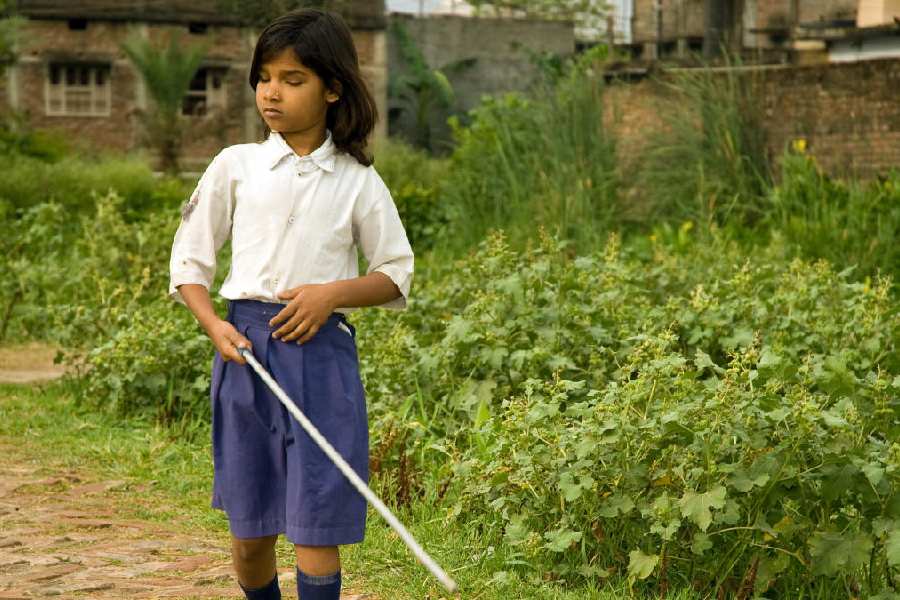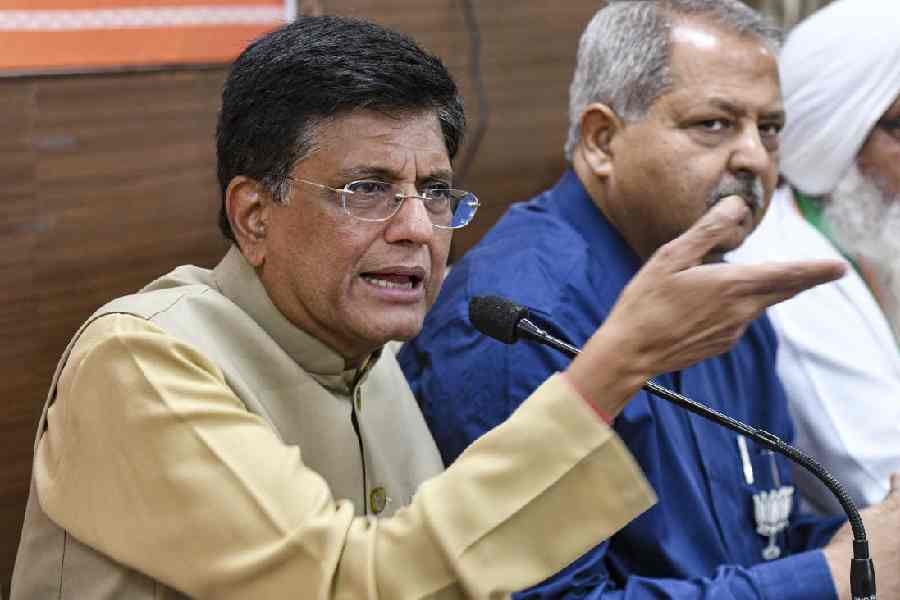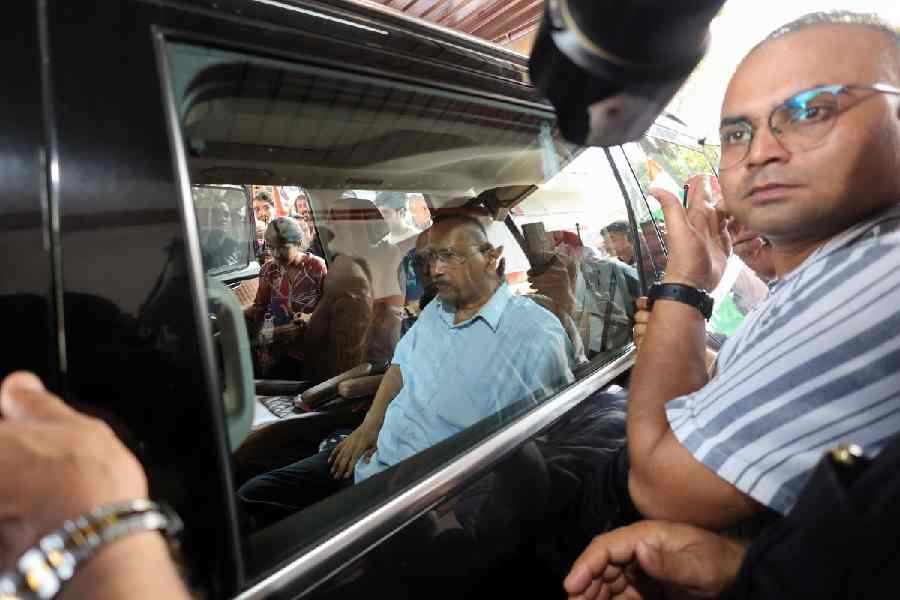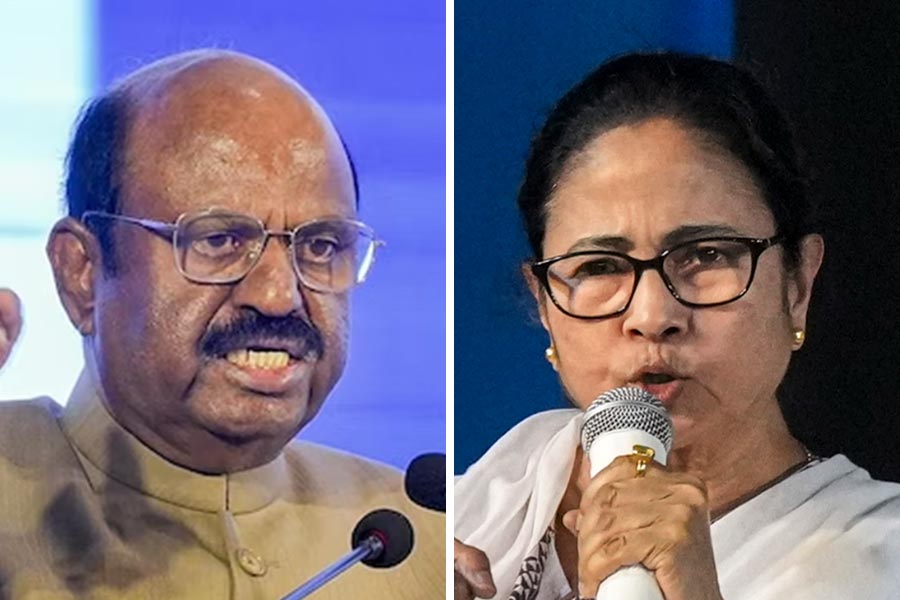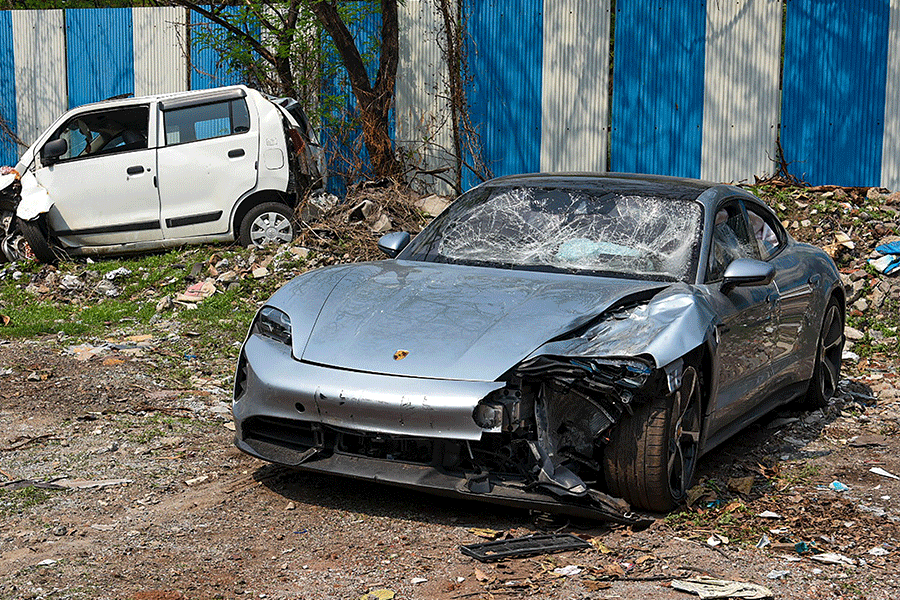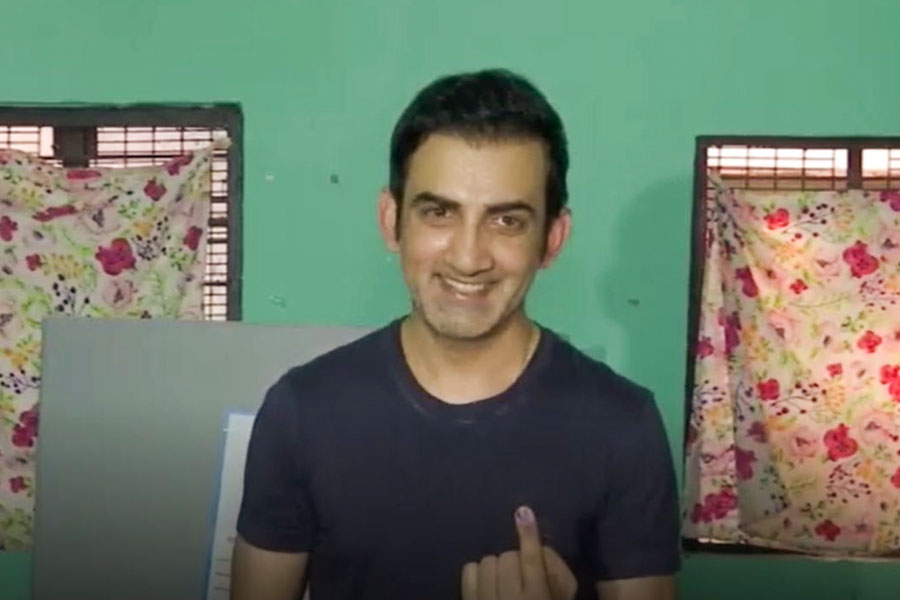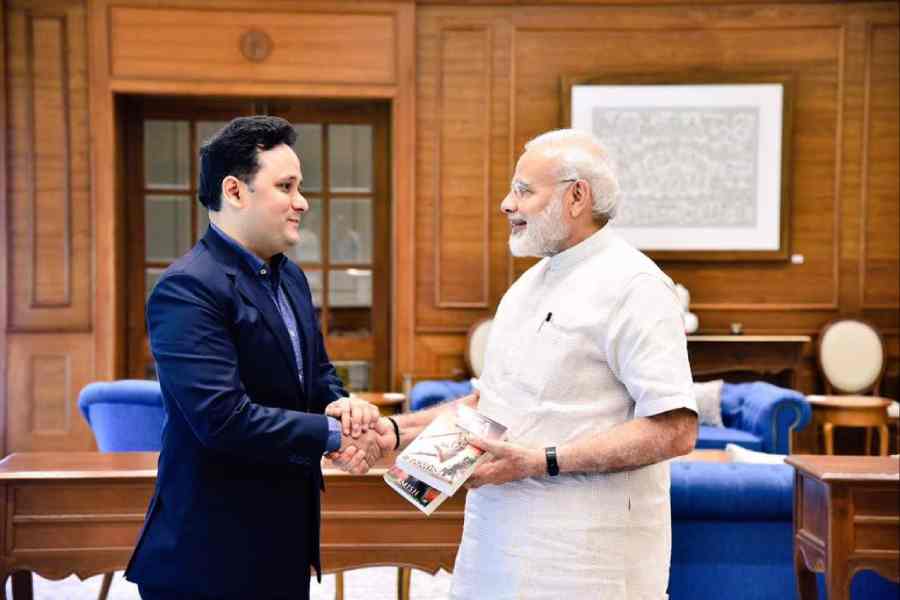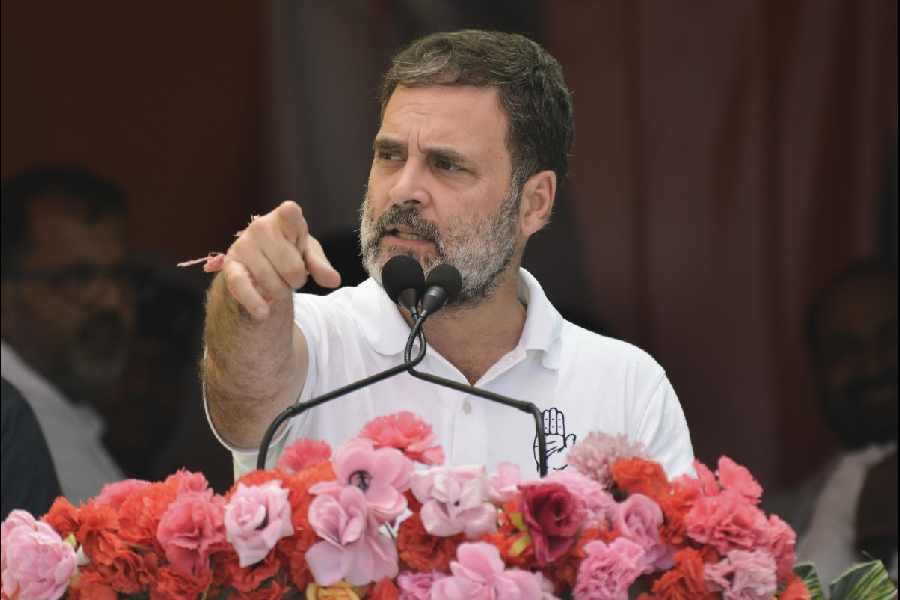Going down one of Chennai’s busy roads in a blazingly hot afternoon two weeks ago, my car stopped at a traffic signal. This was the alms-seekers’ moment. A man in his early forties, accompanied by a girl in her early teens who looked like she could be his daughter, materialised from nowhere. I saw, as they approached, that he was totally blind. He was holding a tin can with a slit just wide enough for coins or currency notes if folded twice over. He did not say anything, nor his daughter. They just stood under the scalding sun as I dropped all the coins I had into his tin box. And as I rolled up the window to shut the heat out, I heard him say in a clear voice, “nannri”. Just that. I have never heard the Tamil equivalent of ‘thank you’ said with such quiet dignity, elegance. It was not said mechanically, or casually. It was said like the sayer knew the word’s core. The daughter then gently nudged him towards the kerb where, as the light turned green and my car moved, they became invisible.
Moving on in my air-conditioned Estilo, I recalled a ‘born-blind’ boy of about 10 I was introduced to in Calcutta by an NGO working for the sightless nearly two decades ago. He was the very embodiment of cheer and a cricket fan, besides. “Who is your cricket hero?” I asked the tiny Calcuttan, assuming that he would say ‘Sourav’. But no, he surprised me by his choice. He said with a smile: “Shocheen”. How he had made that choice I could not fathom. There is no way he could have seen the player playing on screen. Or read about him in the papers. He should be in his 30s now. He is perhaps employed, married, a father. Wherever he is, he is bound to have something if not all of the cheer he showed when he was just 10.
And I thought of another, older boy, gentle, looking like he could be a poet, I met in a home for the blind with other boys and their carers. There was no cheer in him. When I took his hands in mine and said some inanities, he heard me in silence and said nothing (he could speak). He just smiled in his own, very hesitant, way but tightened his hold of my hands and by not releasing them for some long seconds seemed to say, as I imagined, something. What could that be? Later, I fantasised that he wanted to say: ‘I need to talk… to convey many things… just to you but I know we are not alone… I never know when I am alone and when I am not… Never alone to know… or for natural needs… feeling my privacy is mine… without wondering who is watching me… and when certain other things happen to my body… like… I will not describe it… I do not want anyone looking but I know they are and perhaps sniggering… This is one great loss for us the blind… everything is clothed in blindness and everything is naked… everything is private and nothing is private… But I am detaining you… Namaskar Rajyapalshaheb… Namaskar… Aabaar aashun… come again… But why would you? No need for you to return…’
This conversation took place in my imagination. But I know it to have been more real than any I have heard with my ears. I have not even been dimly aware of, even vaguely concerned about, what goes on in the ‘talkie’ of the blind one’s screen. If I was able to see it, it would be something no Censor Board would allow, no film screen would endure.
Most of us are not even aware that India heads the world’s chart in the number of the blind, the vision-impaired. According to the 2020 figures of the International Agency for the Prevention of Blindness, India has 9.2 million blind persons, followed by China at 8.9 million and Indonesia at third place with 3.7 million.
The percentage of females in the Indian population being around 48%, there are about 4.5 million blind women and girls in India. A mortifying thought! And no less mortifying is the fact that of the 9.2 million blind Indians, 5 million live in extreme poverty, that is to say are poor, wretchedly poor.
The nannri came to me from one of those 5 million.
Given that, on an average, a member of the Lok Sabha represents 1.5 million persons, India’s blind at 9.2 million can be taken to constitute the equivalent of 6 Lok Sabha constituencies and India’s-blind-plus-poor 3 Lok Sabha constituencies. Being scattered throughout the length and breadth of India, they do not have a single person, blind or sighted, to represent them collectively. And here I am speaking of the blind, not the visually impaired. If those were to be included in the count, the size of the non-representation of vision-impaired India would become staggering.
Representation apart, the subject of blindness and the needs of the blind itself have, to the best of my knowledge, not occupied sufficient attention of our Parliament and legislatures. What are the major causes of blindness in India and are they being addressed? Is there a plan to increase the infrastructure for eyecare in terms of the number of eye doctors and eye hospitals? Is stem cell research being explored to see if that transplant pathway will work for retina-related blindness?
Blindness occupied Parliament’s attention in a way it should not have had to. This was after the diabolic 1980 episode of policemen blinding 31 undertrials in Bhagalpur, Bihar. The event was ghastly. That policemen could pin down the prisoners, gouge their eyes out with bicycle spokes, and then pour sulphuric acid on the hollow sockets was beyond belief, beyond acceptability. The statement by Prime Minister Indira Gandhi in Parliament on December 1 about the happening befitted her station. “What are we coming to in this country?” she said and continued, “That anybody can do this is beyond my comprehension… I am not able to say anything more…” She broke down while admitting to feeling “physically sick”.
But the ‘Bhagalpur’ day in Parliament was carried by Atal Bihari Vajpayee who said in an unusual ‘take’ that he offered to share the blame for the malaise in society, prompting the then home minister, Zail Singh, to say he too did the same. This was not just unusual but unprecedented. ‘I share the blame…’ Who says that today?
Bhagalpur was a crime perpetrated by perverts. Slumdog Millionaire and Jayamohan’s Tamil works show us that streak of perversity, the malaise in our society, that can inflict blindness. Even the policemen who did what they did were policemen only in a manner of speaking. They were males, the dominant species, exercising brute power not so much as policemen but as dominant males. Caste was involved, class was involved, but above all god-damned insolence was involved. And the apathy of us, Indians, to such happenings was involved. And do we take responsibility? Atalji was exceptional. The malaise he spoke of includes a passive condition, no less corrosive for being passive — our indifference to the condition, so real, so tormenting. Will the new Lok Sabha, whatever its composition, spare a moment to see what India can do to live down its dubious distinction of being the nation with the world’s Number One Blind population?
Amazing initiatives have been made to give encouragement and assistance to the blind in sports and in the arts by official agencies and NGOs. Salutations to them and their initiators! But the Calcutta boy who said “Shocheen” with enchantment and the Chennai man who said “nannri” with grace demand of the metaphoric blind in the generality of us that we open our eyes and, withal, our purses to their need and their hope.

